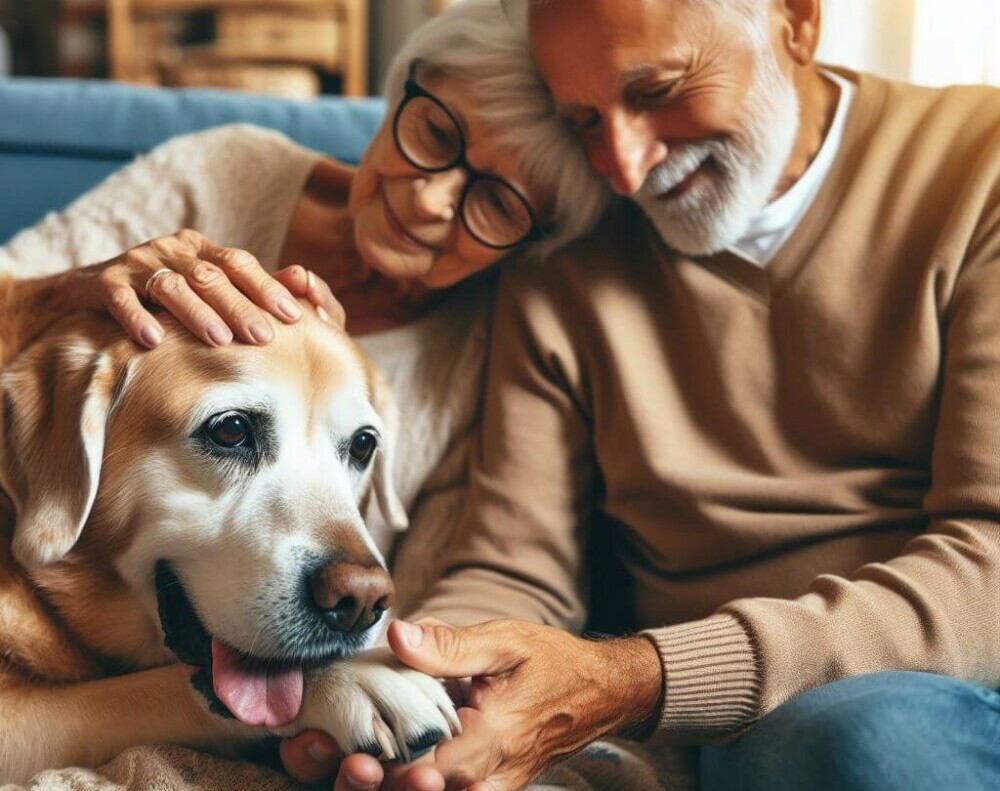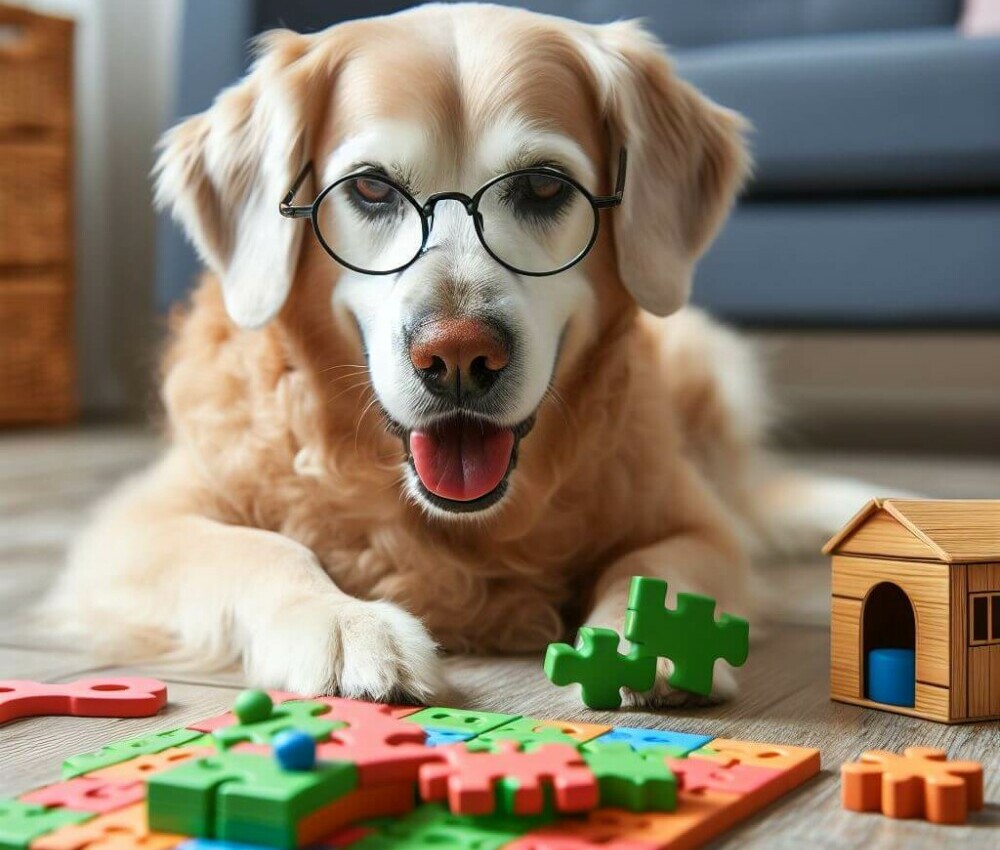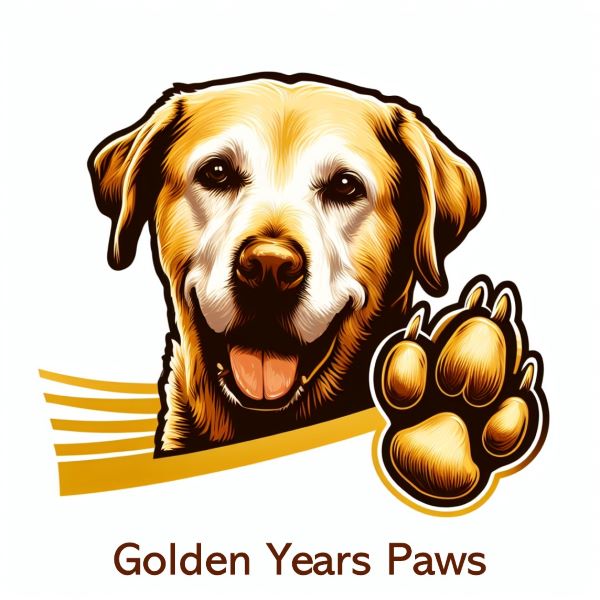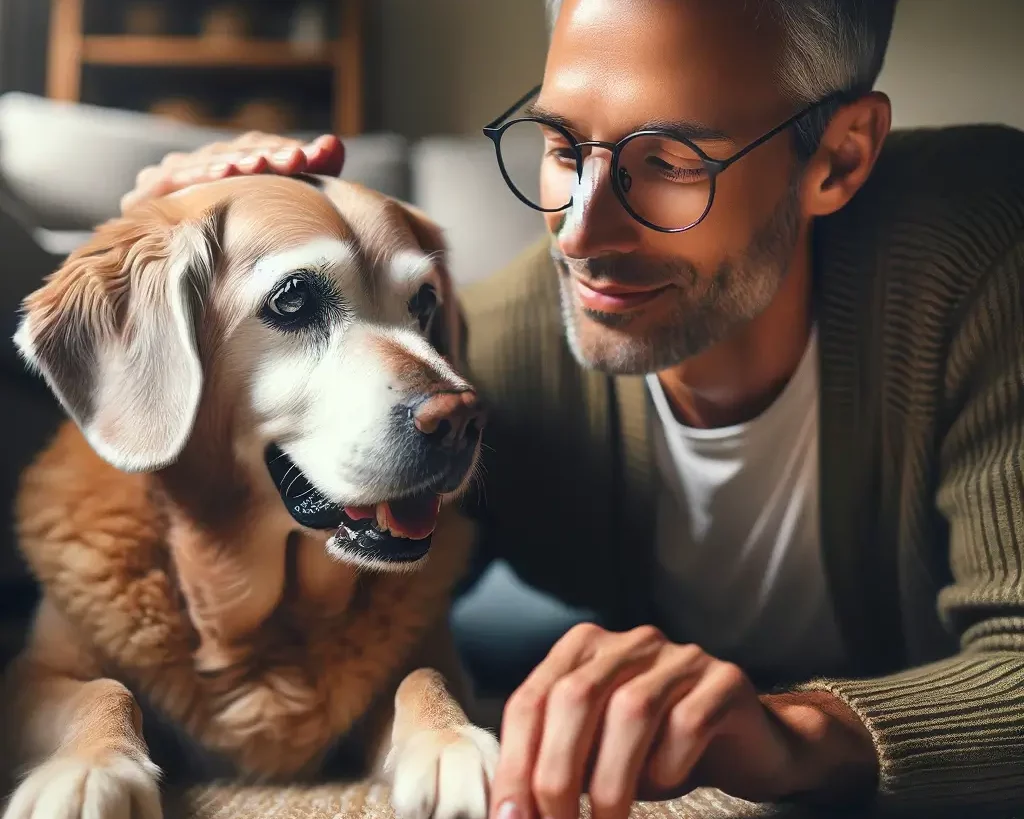I’m going to explore why brain training for senior dogs, like my furry friend Rio, is more than just a fun pastime; it’s a key factor in their overall well-being. Now, Rio may be a 12-year-old Labrador who’s always been obedient, but that doesn’t mean his need for mental exercise has diminished with age. In fact, it’s quite the opposite. As Rio has aged, I’ve discovered that keeping his mind active is just as important as maintaining his physical health.
You might be wondering why brain training is such a big deal for senior dogs. Well, just like humans, older dogs can experience cognitive decline. But guess what? They can also reap the brain-boosting benefits of regular mental workouts. It’s not just about maintaining tricks and obedience skills. It’s also about enhancing their quality of life and potentially improving their longevity through engaging, thought-provoking activities.
You’re going to find out about the cognitive changes that happen as dogs like Rio get older, and how brain training programs specifically designed for senior dogs can make a real difference. We’ll discuss how age-appropriate mental stimulation is a game-changer, focusing on its role in keeping an aging dog’s mind sharp.
With that fresh in our minds, let’s move on to the scientific beef of the matter and really get to grips with how and why brain training is a must for elder pups. We’ll delve into the age-related shifts in canine cognition and how a resource like BrainTraining4Dogs can be the perfect fit for your senior sidekick. This intro just scratches the surface of what we’re about to uncover next.
The Science of Canine Cognitive Health in Aging Dogs
As dogs age, they often experience changes in their cognitive abilities, similar to the process seen in humans. Just like in people, these changes can affect memory, learning, perception, and awareness. As a responsible pet owner, it’s important to understand these changes and how they can impact your dog’s quality of life.
Evidence shows that mental exercise can be incredibly beneficial for maintaining cognitive health in older dogs. Regularly engaging your dog in mentally stimulating activities is thought to slow the progression of cognitive decline. It’s akin to how crossword puzzles, or learning a new language is recommended for aging humans to keep their minds sharp.
Several studies have demonstrated that cognitive exercises can enhance brain function in senior dogs. This includes improved memory, better problem-solving skills, and more extended periods of attention. Brain training provides an excellent opportunity for senior dogs to exercise their mental faculties, ensuring they remain sharp and engaged.
As senior dogs may not display overt signs of cognitive aging right away, it’s crucial to keep an eye out for subtle changes. These might include confusion, decreased interest in play, or changes in social behavior. Brain training can help combat these issues, offering a way to reconnect with your senior pet through positive, rewarding experiences that stimulate both of you.
Remember Rio, my aging Labrador we mentioned earlier? Incorporating brain training into his routine didn’t just give him a new lease on life; it helped maintain his cognitive functions, which is vital for his overall well-being. With the next section, you’re going to find out about the specific techniques and exercises that can be employed to keep the minds of senior dogs like Rio active and healthy.

Brain Training Techniques and Exercises for Older Dogs
Adapting training methods for senior dogs isn’t just about keeping them busy; it’s about matching their evolving needs. Just like Rio, your older dog can still learn new tricks and enjoy the process. It’s all about choosing the right approach.
I’m going to share with you a variety of brain training exercises tailored for older canines. These are designed to cater to their pace and physical capacities while still offering a mental workout.
One effective technique is scent games, which leverage a dog’s natural sniffing abilities. Hiding treats around the house or in puzzle toys can stimulate their olfactory senses and provide an engaging search activity.
You’ll also find that simple obedience training can be mentally stimulating for senior dogs. Refreshing basic commands or teaching new ones gives them a sense of purpose and achievement.
Now, don’t worry too much about your dog’s physical limitations. There are stationary puzzles that engage their problem-solving skills without demanding too much physically. Sliding disks and flip boards are great examples.
Remember, creating a routine is key. Consistency helps senior dogs feel secure and enhances the effectiveness of brain training. So, choose something that resonates with you and your dog, and stick with it.
Regularly incorporating these exercises into your dog’s life will not only brighten their day, but it can also contribute to their overall health and longevity. Ready to learn even more? Let’s see how BrainTraining4Dogs can take your senior dog’s mental fitness to the next level.

Embracing the Golden Years: BrainTraining4Dogs and Your Senior Pet
I’m going to show you how to wrap up this journey with a resource that’s been a GAME CHANGER for me and my buddy, Rio. By now, you understand the immeasurable value brain training has for senior dogs like yours. It’s not just about teaching an old dog new tricks; it’s about enriching their lives and potentially extending those golden years.
BrainTraining4Dogs isn’t just any program; it’s specially designed with exercises that are as much about fun as they are about mental engagement. Think of it as a personal trainer for your dog’s brain. You’re going to find out that this course is easy to follow and can make each training session something both you and your older companion can look forward to.
In my experience, this particular program stands out because it regards senior dogs’ unique needs, focusing not on overwhelming them but on bringing a new spark of curiosity and energy into their routine. From puzzles that challenge their problem-solving abilities to activities that reduce anxiety and boost their spirits, BrainTraining4Dogs is a treasure trove for senior dog care.
Choose something that resonates with you and your dog’s current capabilities. There’s no pressure to perform—just encouragement to enjoy and engage.
I really hope that this guide has given you a fresh perspective on the importance and feasibility of brain training for senior dogs. After all, age is just a number, and with the right support, your senior dog can thrive in every wag of its tail.
Warmest Wags,
Morena
Founder, GoldenYearsPaws.com

